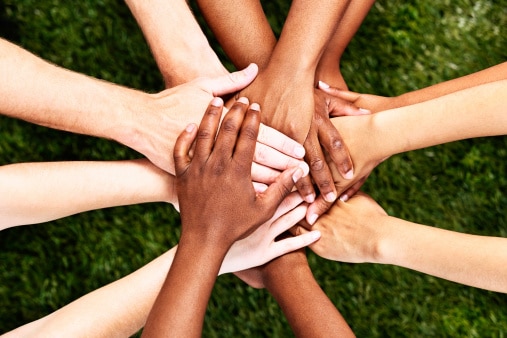August marks Women’s Day in South Africa, a day commemorating the efforts of more than 20,000 women of all races, who marched to the highest political office in the land, on the morning of August 9 in 1956, to raise awareness around women’s rights and present a petition against the carrying of passes by women, to the then prime minister.
More than six decades on, the call for the equitable treatment and acknowledgement of women’s rights remains a battle for a global community of women – for recognition and also for fair and equitable economic opportunities.
Think back to the recent FIFA Women’s World Cup, where champions, USA, returned home with the trophy but also a very small paycheck for their efforts. During their return tour, their victory was overshadowed by calls from supporters to ensure authorities offer them salaries equal to their male counterparts.
READ MORE | No Longer In The Wilderness
Whilst efforts have been made in this regard, the discrepancies in pay between men’s and women’s football, much like many other sectors, remain too large to ignore.
FIFA, the world governing body of football, doubled the total prize money for the 2019 Women’s World Cup from $15 million to $30 million but it is still a fraction of the $400 million received by players in the men’s tournament last year.
The disparity across sub-Saharan Africa is even more glaring. Despite a great showing from teams represented by Nigeria, South Africa and Cameroon, the reality for many local players is that there are no local leagues. As such, players are expected to train and perform at a professional level while still managing a separate full-time job to pay their bills and make ends meet.
On closer inspection of recent data, one is hit with the enormity of the task at hand. The Global Gender Gap Report published by the World Economic Forum in December 2018, revealed that at the current rate of change, it will take about 108 years to close the overall gender gap and 202 years to bring about parity in the workplace.
This is a long time to wait for parity of any sort – what more for the sports field, the political sphere and new digital industries that are likely to emerge?
As women, we certainly can’t sit by the wayside in hopes of being rescued from this dilemma.
I believe that our focus and rhetoric need to be adapted and realigned. I believe it goes beyond just empowering females, but unlocking economic opportunities for all through the advancement of women.
It’s well documented that female-headed households lead to the advancement of all and everyone wins.
Beyond this, the recent FIFA Women’s World Cup reminded me that while the battle for gender equality remains a major challenge, the real issue is around equal and fair recognition – on the soccer field, in the boardroom and in places of political leadership.
READ MORE | Businesses Of The Future: 20 New Wealth Creators On The African Continent
As a society, we should be empowering, supporting and rewarding those who go above and beyond to achieve levels of excellence in their respective sectors.
“We should all be feminists,” a popular quote by Nigerian novelist Chimamanda Ngozi Adichie has a lot of truth to it, in driving the awareness and active citizenry for change.
I believe we should take this a step further and we should all be activists who reward excellence, regardless of race or gender.
Let’s reward excellence! And the economic benefits will naturally follow – for all.
– Gugulethu Mfuphi is an award-winning radio broadcaster, financial journalist, conference moderator and CNBC Africa alumni. She was recently named one of South Africa’s 200 young leaders in media by Mail & Guardian.
